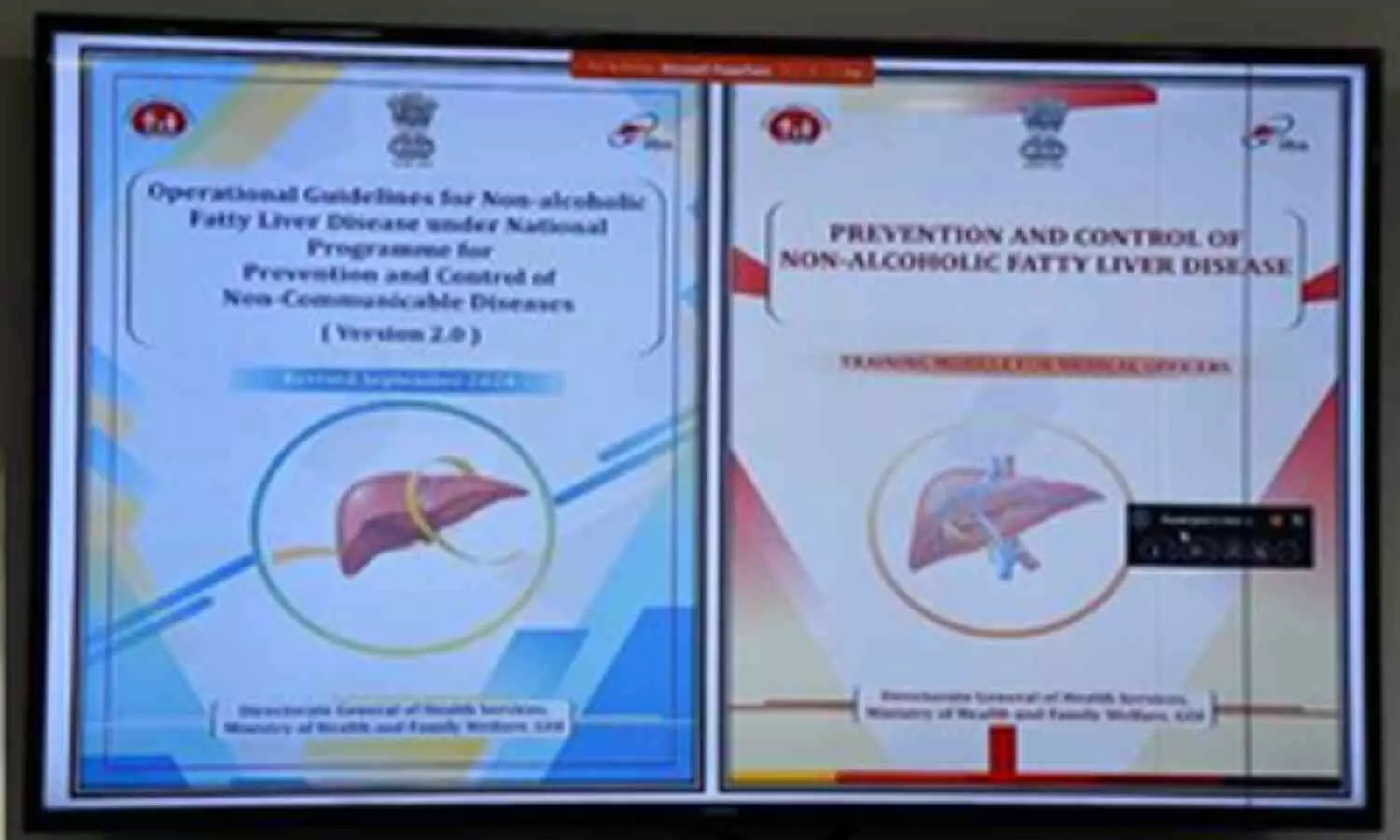Health Ministry Releases Updated Guidelines and Training Module for NAFLD Management

New Delhi: The Union Health Ministry today unveiled the updated Operational Guidelines and Training Module for Non-Alcoholic Fatty Liver Disease (NAFLD). These resources aim to enhance patient care and outcomes by promoting informed, evidence-based practices in managing the condition.
Addressing the session, Shri Apurva Chandra, Union Health Secretary said that “India has taken the lead in recognising NAFLD as a major NCD”. He said, “NAFLD is rapidly emerging as a major public health concern, closely linked with metabolic disorders such as obesity, diabetes and cardiovascular diseases. Out of 10, one to three people can have NAFLD which highlights the impact of the disease.”
Shri Chandra highlighted that “the release of revised operational guidelines and training modules reflects the importance being given by the Union Health Ministry to curb the disease.” He said these documents will provide a framework for health workers at all levels, from community health workers to medical officers. He also emphasized the importance of continuum of care for people who have been diagnosed with NCDs and underlined the need for lifestyle modification for reducing the prevalence of NAFLD.
Speaking on the occasion, Smt. Punya Salila Srivastava, Officer on Special Duty, Union Health Ministry said that “these guidelines need to reach the grassroot level workers so that the disease is detected early and the burden of NAFLD is reduced.” She said that the release of training module is a significant addition to India’s efforts to build capacities amongst Healthcare professionals to tackle the rising burden of NCDs in India.
Dr S K Sarin, Director, Institute of Liver and Biliary Sciences (ILBS) said that the release of the two documents is a momentous step whose results will be reflected in the next few years. He noted that many non-communicable diseases (NCDs) such as diabetes, heart disease, and cancer are linked to liver health, underscoring the importance of maintaining a healthy liver.
Non-Communicable Diseases (NCDs) are accounting for more than 66% of death in the country. NCDs are strongly associated and causally linked with major behaviour risk factors such as tobacco use (smoking & smokeless), alcohol use, poor dietary habits, insufficient physical activity, and air pollution.
Non-Alcoholic Fatty Liver Diseases (NAFLD) is emerging as an important cause of liver disease in India. It could be assuming a silent epidemic with community prevalence ranging from 9% to 32%, depending on age, gender, area of residence and socioeconomic status. In other words, we are saying that out of 10 persons 1 to 3 persons will be having Fatty liver or related disease.
India is a significant global contributor to non-communicable diseases (NCDs), with liver-related metabolic diseases being a key factor. Recognizing the increasing burden, India became the first country to integrate NAFLD into the National Programme for Prevention and Control of NCDs in 2021.
Given the latest evidence-based developments in NAFLD, there was an urgent need to update the guidelines to equip healthcare providers with current strategies for prevention, control, and management of the condition.
The revised guidelines emphasize the importance of health promotion and early detection to ensure patients with NAFLD receive timely and effective care. They also encourage a multidisciplinary approach, combining the efforts of healthcare professionals from various fields to provide comprehensive care for those affected by NAFLD.


